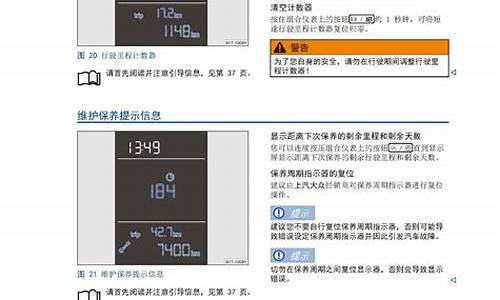您现在的位置是: 首页 > 汽车资讯 汽车资讯
mobilize读音_mobilize怎么读音
佚名 2024-05-31 人已围观
简介mobilize读音_mobilize怎么读音_mobilize怎么读音大家好,今天我想和大家探讨一下关于mobilize读音的问题。在这个话题上,有很多不同的观点和看法,但我相信通过深入探讨,我们可以更好地理解它的本质。现在,我将我的理解进行了归纳整理,让我们一起来看看吧。1.mobilize????2.发明是动词,没有反义词啊。3.求翻译!~mobilize????mill
大家好,今天我想和大家探讨一下关于mobilize读音的问题。在这个话题上,有很多不同的观点和看法,但我相信通过深入探讨,我们可以更好地理解它的本质。现在,我将我的理解进行了归纳整理,让我们一起来看看吧。
1.mobilize????
2.发明是动词,没有反义词啊。
3.求翻译!~

mobilize????
millions of +Sth (百万)
million of 没有这种说法, 前面一定要有数量词,后面不加of sth (百万)
billion of 没有这种说法, 一定要有数量词,后面不加of sth (十亿)
billions of +Sth (十亿)
hundred of 没有这种说法, 一定要有数量词,后面不加of sth (百)
hundreds of +Sth (百)
加油哦,有问题就问我~~~
发明是动词,没有反义词啊。
OK了,累啊````
Practices have shown that the TPR method combines teaching with happiness, which gathers visual ability, listening ability and feeling together. It enables the participants to fully use their mouths, ears, hands and hearts. Also it strongly proves that dynamic memorizing is superior to static one. Various kinds of movements tightly related to the daily life make the English class more active and heated. Due to the students' imagination, their unique movements will certainly shorten the distance between the teachers and the students. Moreover, they will unite knowledge giving and affective cultivation, which finally stimulate the students' willingness and capability in learning, making their interest long-lasting.
1. It helps the students to understand the classroom language, to concentrate and thus lift up the effect of listening.
The classroom language is the basic of class giving, and it decides whether the only-English-speaking class can be carried on, also it is the very beginning to build up students' study habit and their sense of language. But sometimes the students can't understand the classroom language at once. If the TPR method is used, not only can the class be organized in English, it will also overcome the barrier that the students don't work through what they've just heard, what's more, it draws their focus. The body language of the teachers serves as a link. Most of the classroom language is imperative sentences. Asher thinks that the verbs, especially in the imperative sentences, are of the most importance in language, from which the usage and the learning will be developed. The imperative sentences cause the body language and we humans' eyes are likely to focus on the moving subjects. With time goes on, the students can understand what the teachers are talking about even if there is no longer any body language.
Having trained the students like this for a period of time in the process of my teaching pratice, I find that they can mostly get to my orders. It simplifies the explaining of the classroom language, and draws their attention to the class, with their eyes, ears and brains working together, which assures the effect.
2. It does good in the understanding of the words, as well as the memorizing and the usage, and strengthens the linguistic environment.
The tough problem widely existing in the learning of English is that to recite the words sucks. The contents of memory can be divided as image, logic, emotion and motion. Although everyone seems to be able to memorize in these four ways, the effect varies from students in different ages. Junior middle school students are in the process that their memory systems are under the transition from the period of specific image to the one of abstract logic. They can memorize anything vivid faster and more accurately than that is abstract.
To work on their feature in memorizing, I insist my emphasis that we should make them learn in an environment filled with English and try not to use Chinese in the whole period of my teaching practice.
It is difficult because the students don't totally get the meaning of the new words so the teachers can't make themselves understood. To solve this problem, I take advantage of the "body-teaching" approach to help them. For example, when teaching them about the parts of the body as head, eye, nose, mouth, leg, hand, foot, neck, arm, I finger at my own part to show them with my mouth telling the name. Then according to the TPR method, I say," Touch your hand." and let the student respond. Before long will they know how to pronounce and understand its meaning, as well as remember it. Afterwards I choose one or several students to be the "little teacher" to lead others on with the perform, which makes them communicate in motion response, and they will be very active and excited. To strengthen their memory, I also take a competition to train the speed of their response. I will choose two students of the same level stand in front of the blackboard, facing their classmates, eyes covered. I ask them to finger out the part according to my order as fast and preciously as they can. This kind of training is of effect and interest and helps a lot in the process, after which my students have progress in both interest and response.
3. It also contributes to the good atmosphere of class and the relationship between students and teachers
The "body teaching" approach refers to the theory of Humanism Psychology that affection influences the study, which says that a good communication between students and teachers can relieve the students' press and help to build a pleasant atmosphere in learning. Teachers can sing and dance with students in class, which obviously shortens their distance. It helps the students to feel the teachers' love and they are in a somewhat relaxing environment that will lift up their accomplishment. For another example, teachers can make use of an English song to stimulate the student's interest. Listening to the song while doing some warm-up exercises can rapidly draw their attention to the subject "English" and fulfill the atmosphere with pleasure.
求翻译!~
发明
inventinventioncontrivancecontrivedevisefatheroriginatethink up
发明
创造发现
发
发
fā
<动>
(形声。本义: 放箭)
同本义 [shoot an arrow]
发,射发也。——《说文》
壹发五豝。——《诗·召南·驺虞》
发彼有的。——《诗·小雅·宾之初筵》
循声而发。——《礼记·射义》
矢四发。——《汉书·匈奴传》
其射,见敌急,非在数十步之内,度不中不发,发即应弦而倒。——《史记·李将军列传》
暮见火而俱发。——《史记·孙子吴起列传》
见其发矢十中八九。——宋·欧阳修《归田录》
度不中而轻发。——清·徐珂《清稗类钞·战事类》
又如: 百发百中; 发矢(射箭); 发箭(射箭);发功(指射技)
出发;上路 [set out;start off]
发,去也。——《广雅》
履我发兮。——《诗·齐风·东方之日》
朝发枉诸。——《楚辞·离骚·涉江》
顷之未发。——《战国策·燕策》
卿与子敬、程公便前发。——《资治通鉴》
兰舟催发。——宋·柳永《雨霖铃》
又如:发足(起程,出发)发程(起程,上路;动身启程);发逐(出发追逐);发迈(出发远行)
打开;开启 [open]
成有子九岁,窥父不在,窃发盆。——《聊斋志异·促织》
又如:发日(公文的启封日期);发书(拆开诏书或书信)
征发;征调 [call up;requisition]
西门豹即发民凿十二渠。——《西门豹治邺》
又如:发召(征调);发调(征调);发徭(征派徭役)
发生;发出 [happen;occur;take place]
使人发书于赵王。——《史记·廉颇蔺相如列传》
而大声发于水上。——宋· 苏轼《石钟山记》
怀怒未发。——《战国策·魏策》
变遂发。——清·梁启超《谭嗣同传》
又如:发念(萌生念头);发意(产生某种意念);发兴(发生)
发布;宣告 [publish;declare]
今王发政施仁,使天下仕者皆立于王之朝。——《孟子·梁惠王上》
遂发命,遽兴姜戎。——《左传·僖公三十三年》
又如:发政(发布政令)
抒发;发泄 [give vent to;let off]
发狂吟。——《三国演义》
发其志士之悲哉。——明·张溥《五人墓碑记》
又如:发郁(发泄郁结在心头的烦闷);发忿(发泄愤恨的情绪);发挥(抒发)
派遣 [dispatch;send]
吾欲发兵,使公及桓楚将。——《史记·项羽本纪》
二世元年四月,发闾左适戍渔阳九百人。——《史记·陈涉世家》
孤当续发人众,多载资粮,为卿后援。——《资治通鉴》
又如:发师(派遣军队、出兵);发导(派遣向导)
挖掘 [dig]
于败石丛草处,探石发穴。——《聊斋志异·促织》
又如:发冢(掘墓);发硎(发掘整理);发揭(发掘,揭开)
花开放 [flower;bloom]
野芳发而幽香。——宋·欧阳修《醉翁亭记》
又如:发秀(开花);发彩(指开花)
送出;交付。与“收”相对;发出 [send out;deliver]
发五十金。——明·张溥《五人墓碑记》
又如:发电报
因得到大量财富而兴旺 [get rich;make a fortune]。如:暴发(突然发财得势)
发酵,膨胀 [(of foodstuffs)rise or expand when fermented or soaked]。如:面发了;发一发干菜
卖出 [sell]。如:发兑(批发;卖出);发脱(卖出;打发;除去)
繁育;生长 [sprout;grow]。如:发孚(发芽);发鲜(发芽);发荣滋长(草木繁茂的萌发生长)
施行;开始 [carry out;start]。如:发头(开始;起头);发讲(开始讲解);发始(开始);发严(开始严阵待命)
阐发 [elucidate]。如:发微(阐发微妙之处);发义(阐发义理);发题(阐发题意);发蕴(阐发奥秘之情)
显现;显露 [appear;show;become visible]
征于色,发于声,而后喻。——《孟子·告子下》
凄凄切切,呼号奋发。——宋·欧阳修《秋声赋》
又如:发色(呈现色彩);发迷(显现迷惘的神情);发梦(显现梦境)
表现 [show;display]。如:发华(表现出文彩);发威(显示威风);发藻(显示文采)
散发;发给 [distribute;issue]。如:发越(散发,播散);发辉(散发光辉)
举事;发难 [rise in revolt]。如:发谪(举发;谴责);发衅(挑起争端);发举(兴起,举事)
倡始;提出 [propose;sponsor]。如:发端
启发;开导 [enlighten]。如:发悟(启发使领悟);发机(启发机杼。多指诗文的构思和布局)
提拔;举荐 [promote;recommend]。如:发困(举荐处于困境的人);发荐(发迹,被荐举)
传扬;张扬 [spread]。如:发闻(传播;显扬;传扬名声);发德(使道德显扬)
揭露;暴露 [expose;lay bare]
又如:发奸(揭发坏人坏事);发潜(揭发潜伏的坏人坏事);发举(揭发,检举)
点燃;燃烧起来 [ignite;fire]褺
同时发火。——《资治通鉴》
又如:发爨(烧火做饭);发薪(点燃柴草)
疾病发作 [attack;break out]。如:发脾寒(患疟疾病);发痧(患中暑或霍乱等急性病)
制作;拟定 [make;elaborate]。如:发天葩(比喻制作新奇的文章)
歌唱;表演;演奏 [sing;play]。如:发调(发出曲调);发猛(高亢清扬的乐声);发梁(歌声绕梁不绝)
感到 [feel; have a feeling]。如:发虚(饿得发慌);发软;发晕
行动 [act]。如:发止(行止;进退);发乔(做出滑稽可笑的动作)
发源;发端 [rise;originate]。如:发轸(比喻事物的起始、开端);发岁(一年起始)
发性,使性子 [get angry;lose one's temper]。如:发业(发怒;作孽);发村(撒野;发脾气);发野(撒野;蛮不讲理)
流露感情 [reveal;betray]。如:发中(发自内心)
通“拨(bō)”。除去;错乱 [cast away;clean;mix up]
居干之道,菑栗不迤,则弓不发。——《周礼·考工记·弓人》
毋逝我梁,毋发我笱。——《诗·邶风·谷风》
通“法”。效法,遵守 [follow the example of;imitate;go by]
法者不可不恒也,存亡治乱所从出,圣君所以为天下大仪也,君臣上下贵贱皆发焉。——《管子·任法》
发
发
fā
〈量>
在小武器打靶比赛中每个射手规定的发射次数 [string]。如:一次20发
计算子弹、炮弹的单位。如:一发炮弹
另见fà;fèi
发案
fā’àn
[a case arises] 发现某人作案事实;发生案子
公安人员奔赴发案现场
发白
fābái
[become pale;lose colour] 缺色的,如灰的颜色的,死白的,苍白的
吓得嘴唇发白
发榜
fābǎng
[publish a list of successful candidates] 公布考试成绩的名次或被录取人的名单
发报
fābào
[transmit messages by radio,telegraphy,etc.] 发送电报
发变
fābiàn
[grow] [方]∶青少年因发育而发生形体方面的改变
发表
fābiǎo
[publish]∶在报、刊上登载出来
发表文章
[issue;declare;express]∶在公开场合说出
发表意见
[relieving superficies syndrome by means of diaphoresis]∶中医名词。即发汗解表。解散表邪的一种方法
发兵
fābīng
[dispatch troops] 出兵作战
发病
fābìng
[attack] 生病,疾病的侵袭
突然发病
发布
fābù
[issue;release;deliver;distribute] 宣布,发表
向全国发布新闻
发财
fācái
[get rich;make a fortune] 获得大量钱财物
发财致富的门路
发车
fāchē
[depart;depatch a vehicle] 车辆[从车站或某地点]开出
发痴
fāchī
[方]
[stare blankly;be in a daze;be stunned]∶发呆
[go mad]∶发疯
发愁
fāchóu
[worry;be anxious]
为烦恼或焦虑的事例所折磨
我心里不再发愁了
因为没有主意或办法而愁闷
什么使你发愁
发出
fāchū
[send out]∶使产生声音
发出喊叫声
[issue]∶送出;下达
发出传票
发出指示
[give out]∶向四周扩散
发出一种刺鼻的芬香
发怵
fāchù
[cowardly;timid][方]∶胆怯,畏缩
第一次上台讲话总有点发怵
发达
fādá
[advance;flourishing]∶[事物] 充分发展、兴盛
错把工业的发达当作精神的丰富
[gain fame and fortune]∶旧指人发迹
[develop]∶使充分发展
发达经济
发达
fādá
[developed;flourishing] [事物]已充分发展,各方面先进
发达国家
发达国家
fādá guójiā
[developed country] 比较富有或收入普遍高的国家
发呆
fādāi
[stare blankly] 呈现出呆相;发楞
她一句话不说,坐在那里发呆
发电
fādiàn
[generate electric power]∶发出电力,向工业企业、居民和农村大规模提供电,一般均设有固定电厂
[send a telegram]∶拍发电报
发电厂
fādiànchǎng
[generating station;power station] 产生电力的工厂
发电机
fādiànjī
[electric generator]把汽轮机、水轮机、内燃机所产生的机械能变成电能的机器
发动
fādòng
[start;launch]
使开始
发动战争
使机器运转
发动机器
[arouse;mobilize]∶使行动起来;动员
发动群众
发动机
fādòngjī
[engine;motor]
适用于特殊类型的机器,通常它把一种形式的能改变为另一种更有用的能,有时它既适用于动力发生装置,也可指包括动力装置的整个机器
汽油发动机
航空发动机
把(如热能,化学能、核能、辐射能和升高的水的势能等形式的)能量转变为机械力和运动的机器
发抖
fādǒu
[shiver;shake;tremble] 因恐惧、生气、寒冷等原因而身体颤抖
冷得发抖
发端
fāduān
[initiative;make a start]∶开端;创始(如一个过程或一连串的事件)
[dawn;beginning]∶初现,开头
人类意识的发端
发端词
fāduāncí
[function characters used in the beginning of classical Chinese documents]∶也叫发语词。多用在句首,揭举事物。文言中有“夫”、“维”、“盖”等词
[preface]∶序言
发凡
fāfán
[introduction to a book (subject)] 揭示全书或某一学科的要旨
其发凡以言例,皆经国之常制,周公之垂法,史书之旧章。——杜预《左氏春秋传序》
发放
fāfàng
[provide;grant] 发给
发放被单、褥单等
发奋
fāfèn
[work energetically;exert oneself]
振作起来;奋发
发奋攻关
决定努力;发愤
发奋图强
fāfèn-túqiáng
[make a determined effort to do well] 振作起来,谋求强盛
发奋图强,打败敌国
发愤
fāfèn
[exert oneself;make a determined effort]∶决心努力
[give free vent to one's grievance]∶发泄愤怒
卒以吾郡之发愤一击。——明·张溥《五人墓碑记》
发疯
fāfēng
[go mad;go crazy;suffer form mental disorder]∶因患精神病而失去常态
他已经发疯三天了
[take leave of one’s senses]∶比喻做事反常
你发疯了吗?
发福
fāfú
[grow stout] 套语,身体发胖(多指中老年人)
发付
fāfù
[despatch;send] 打发
发高烧
fāgāoshāo
[fever; suffer from a fever]原指因生病而体温增高,现在常用来比喻感情过于激动时控制不住自己而乱说乱做
你今天晚上竟会为我们给赵庆恩倒一个小病房这么小的事,发这么大的高烧,说出那样难听的话
发稿
fāgǎo
[send manuscripts to press]∶批准稿件付印
[distribute news dispatches]∶发新闻专稿
发给
fāgěi
[deal;distribute;deliver]∶分给
发给每个人三个夹馅面包
[let;send out]∶指在要求、投标或出价之后判给或分给
发给某人的伐木权
发光
fāguāng
[give out light]∶[从光源] 发出亮光
前灯发光
[shine;luminescence]∶放射光芒
闪闪发光
发汗
fāhàn
[induce perspiration;diaphoresis]∶用药物等使身体出汗
[sweat]∶发酵过程;特指烟叶变陈期间产生并使之芳香柔韧的自然发酵
发狠
fāhěn
[make a determined effort]∶横下心;咬牙
他一发狠,把合同也给撕了
[be angry]∶发怒;生气
那么发狠,至于吗
发红
fāhóng
[pinken;turn red]∶变为粉红
[rubefaction]
引起发红的动作或过程
由于发红药引起的发红
发花
fāhuā
[one's eyesights grow dim and see things in a blur] 眼睛看东西模糊不清
发话
fāhuà
[give oral directions]∶发出口头指示
该怎么做,你快发话
[speak out angrily]∶气冲冲地说话
发坏
fāhuài
[play a dirty trick] [方]∶捉弄人;做不体面的事
发还
fāhuán
[send back;return;give back] 把收来的东西还回去
发还原单位
发慌
fāhuāng
[feel nervous;get flurried] 心里不沉着;心神不安
心里发慌
发挥
fāhuī
[bring into play]∶表现出内在的能力
发挥知识分子的聪明才智
[develop;elaborate]∶把意思或道理充分表达出来
这一论点有待进一步发挥
借题发挥
[set off]∶衬托;显现
稍饰以楼观亭榭,与江山相发挥。——宋·陆游《过小孤山大孤山》
发昏
fāhūn
[feel giddy;feel dizzy]∶迷糊;神智不清
大风吹得头发昏
[lose one’s head]∶使思想或精神不稳定
这场灾难使她发昏
发火
fāhuǒ
[catch fire;ignite fire]∶开始燃烧
发火点
[detonate;go off]∶子弹、炮弹的底火经撞击后火药爆发
扣动扳机,但没发火
[get angry]∶发脾气,激怒
一个人坐在那里发火
发货
fāhuò
[deliver goods]∶厂商发送货品
他们准备今天发货
[send out goods]∶运出货物
主管公司即时发货
发急
fājí
[become impatient] 着急,变得无耐心
等得发急
发迹
fājì
[(of a poor man)gain fame and fortune;rise to power and position] 指人脱离困顿状况而得志、兴起
他的发迹史不值一提
发家
fājiā
[build up a family fortune] 使家庭变得富裕
他靠投机发家
发奖
fājiǎng
[award prizes] 为获奖者颁发奖品
发酵
fājiào
[ferment] 复杂的有机物在微生物作用下分解
发窘
fājiǒng
[embarrassed] 感到为难的;显出窘态
告诉他关于他本身的、使他发窘的真象
发觉
fājué
[discover;find;detect] 开始知道
错误一经发觉,就应改正
发觉权威之间存在分歧
发掘
fājué
[excavate]∶把埋藏的东西挖掘出来
发掘宝藏
[dredge;explore;unearth]∶犹如用挖掘、深入搜寻来显露或采集
发掘事实
发刊词
fākāncí
[foreword(或introduction)to a periodical] 刊物在创刊号上说明本刊宗旨等的文章
发狂
fākuáng
[go mad;go crazy] 发疯
他暴怒起来简直就像一个发狂了的孩子
发困
fākùn
[feel sleepy;feel drowsy] 想睡觉
我听得直发困
发牢骚
fā láosao
[mutter]∶抱怨;鸣不平
一群发牢骚的人
[grumble]∶老是埋三怨四,不满地嘟囔
食品涨价,全城人都在发牢骚
发冷
fālěng
[rigor;feel a bit chilly] 身上感觉冷(如发烧时感觉寒冷)
发愣
fālèng
[daze]∶发呆,发昏
[trance]∶恍惚,出神
发利市
fālìshì
[first deal] [方]∶开业后做的第一笔生意,预示日后买卖顺当
发亮
fāliàng
[shine] 发出光亮
眼睛发亮
发亮的皮鞋
发聋振聩
fālóng-zhènkuì
[deafening noise] 聩、聋:耳聋。发出巨响,让耳聋的人也能听到。喻指用言论文章使头脑糊涂,麻木不仁的人清醒过来
今者,吾欲与之微词,则恐不足发聋而振聩。——严复《救亡论》
发落
fāluò
[deal with (an offender);dismiss with term of punishment] 处置;惩治
听候发落
从轻发落
发麻
fāmá
[tingle] 产生轻微麻木的感觉
发毛
fāmáo
[be scared;get gooseflesh]∶汗毛竖起来,喻指惊惧
那副凶恶的样子让人发毛
[lose one’s temper] [方]∶动怒
别惹他,这人要发毛
发霉
fāméi
[go mouldy;become mildwed] 有机物因霉菌生长而变质、变色
发蒙
fāmēng
[get confused;get into a muddle] [口]∶糊涂,不清楚
发蒙
fāméng
[teach a child to read and write;teach a child his ABC] 启发蒙昧,后也指教儿童、少年开始识字读书
发面
fāmiàn
[leaven the dough] 面粉加水、面肥或发酵粉揉成团、放置发酵的过程
发面
fāmiàn
[leavened dough] 经过发酵的面
发面饼
发面点心
fāmiàn diǎnxin
[strudel]用薄如纸的生发面皮,包上任何一种馅,卷起来烘烤而成的点心
发明
fāmíng
[invent]∶创造出新事物或新方法
他发明一种岩石钻孔机并得到了专利权
[expound]∶创造性地阐发;发挥
颇有发明
发明
fāmíng
[invention] 创造出的以前不存在的事物或方法
新发明
需要是发明之母
发明家
fāmíngjiā
[inventor]创造新装置、新设计 或新方法者
发木
fāmù
[feel numb] 感到麻木;迟钝不灵活
手发木
发难
fānàn
[launch an attack;rise in revolt] 发动反抗或叛乱;起义;起事
天下初发难,假立诸侯后以伐秦。——《汉书·项籍传》
发怒
fānù
[flare up;infuriate;get angry] 动怒,生气
她因为最微不足道的事而发怒
发牌
fāpái
[deal] 获得分发纸牌者的权利或职责
该我发牌了
发胖
fāpàng
[get fat] 身体变胖
年老发胖
发配
fāpèi
[banish;be exiled for penal servitude] 古刑律之一。指罪犯被判充军或流放而由差役押解出发
大盗未杀人,及他犯同谋多人者,止主谋一二人立决;余经秋审,皆减等发配。——清·方苞《狱中杂记》
发脾气
fā píqi
[lost one’s temper]∶沉不住气,生气
这种事也没有使她发脾气
[get angry]∶因事情不如意而吵闹或骂人
动不动就发脾气骂人
发票
fāpiào
[invoice;bill;receipt] 商店卖出货品时开给顾客的单据
发起
fāqǐ
[propose;sponsor]∶倡议 [做某件事情]
这项工程由二十个单位发起
《英汉辞海》由十七位专家发起编写
[launch;start]∶发动
发起进攻
发气
fāqì
[方]
[be angry]∶发急生气
这怎么能不让人发气
[give vent to one’s anger]∶发泄怒气;出怨气
我无缘无故能发气吗
发情
fāqíng
[oestrus;be in heat] 雌性高等动物卵子成熟期的情欲亢奋;也指雄性要求交配的冲动
发球
fāqiú
[serve a ball] 开球
发热
fārè
[give out heat]∶温度增高,发出热量
太阳发光发热
[have a fever]∶体温升高到正常水平之上,不论是疾病的反应(如对感染的反应)还是因治疗而人为地导致
[be hotheaded]∶比喻不冷静,不清醒
头脑发热
[burn]∶产生热的感觉
她感到两颊发热
发人深省
fārén-shēnxǐng
[set people thinking] 唐·杜甫《游龙门奉先寺》:“欲觉闻晨钟,令人发深省。”后以“发人深省”谓启发人深刻醒悟
发散
fāsàn
[diffuse;diverge]∶[光线等] 由一点向四周散开
发散透镜
[diverge]∶中医指用发汗的药物把体内的热散出去
发散
fāsàn
[divergence] 散开(如由一个共同中心向外延伸的几条直线),数学上的发散状态
发丧
fāsāng
[declare sb. has died;sent out obituary]∶把去世的消息通知死者亲友
[deal with the funeral affairs;manage a funeral]∶办理丧事
发烧
fāshāo
[have a temperature;have a fever]∶体温超过37.5°C
一连三天都在发烧
[heat sink]∶由疾病引起的过高体温(如由于炎症)
发射
fāshè
[emit]∶发出
发射光谱
[launch;project;shoot]∶[从斜轨、发射器或其他装置] 放出或弹射出 [自动推进的物体]
发射一枚鱼雷
[fire]∶[用枪或仿佛用枪] 射出
发射炮弹
发身
fāshēn
[puberty;reach puberty] 男女到了青春期,生殖器官发育成熟,身体其他各部分也发生变化,逐渐长成成年人的样子。青春期的年龄,男孩一般是13到16岁,女孩11到14岁
发神经
fā shénjīng
[be crazy] 疯疯癫癫的样子
那人经常无缘无故发神经
你发神经啦,盯着人家不放
发生
fāshēng
[happen;take place]∶原来不存在的事情出现了
发生事故
村里发生了一件奇怪的事
[occur]∶出现
成功的婚姻不会自动发生,而是由人创造出来的
[arise;emerge]∶产生、兴起
好雨知时节,当春乃发生。——唐·杜甫《春夜喜雨》
发声
fāshēng
[sound;sound production]∶产生噪音或声响(如用嗓子或用器具);产生一种能听见的效果
首先教喇叭传令兵怎样使喇叭发声
[utter]∶从嗓子里发出声音
那只鹦鹉从来不发声
发市
fāshì
[the first sale;open for customers] 商店一天中第一次交易
发誓
fāshì
[swear;vow;pledge] 庄严地说出表示决心的话
指天发誓
发誓拥护宪法
发售
fāshòu
[sell;put on sale] 出售
发送
fāsòng
[transmit by radio]∶把无线电信号发射出去
[dispatch]∶把文件、信件送出去
发送
fāsòng
[deal with funeral arrangements] 办理丧葬事务
发酸
fāsuān
[turn sour]∶呈现酸味
这稀饭都发酸了,还能喝吗?
[irritate]∶心情悲痛,就要哭出来的样子
看她这么一哭,我心里也直发酸
[ache slightly]∶肌肉酸痛
双腿发酸,我真想坐下休息
发条
fātiáo
[remontoir;spiral power spring] 盘紧后借弹性作用在松开时产生动力的长条钢片
发文
fāwén
[dispatch documents] 指本单位发出的公文
发文簿
发问
fāwèn
[ask a question] 口头向人提出问题
发物
fāwù
[stimulating food,such as mutton,fish,shrimps,etc.] 指富于营养或有刺激性、容易使疮疖或某些疾病发生变化的食物。如鱼虾、羊肉等
发现
fāxiàn
[discover;find]
第一次看到或知道
发现了一个大海湾
发现某种不认识的动物的足迹
找到[一个物件]
发现球在桌子底下
由于对一个目标的研究或经验而找到
科学研究几乎每天都在发现重要的新原理
发祥
fāxiáng
[originate;rise] 兴起;发生
发祥流庆,对越天地者,舄奕乎千载。——《后汉书·班固传》
发祥地
fāxiángdì
[place of origin;birthplace] 原指帝王祖先兴起的地方,后指民族、文化等的发源地
发饷
fāxiǎng
[issue pay to soldiers] 发薪
发笑
fāxiào
[laugh;laugh out] 笑出声来
令人发笑
发泄
fāxiè
[give vent to;let off] 尽量发出
发泄不满
发薪
fāxīn
[pay out wages;issue pay] 发给工资
发信
fāxìn
[post a letter] 邮寄信件
发行
fāxíng
[issue;publish;distribute] 发出新货币、新书刊等
发行航空邮票
发行了一种新唱片
发硎
fāxíng
[sharp] 指刀新从磨刀石上磨出来,十分锋利
干将发硎,有作其芒。——清·梁启超《饮冰室合集》
今臣之刀十九年矣,而刀刃若新发于硎。——《庄子·养生主》
发芽
fāyá
[germinate;sprout] 种子的胚胎发育长大,突破种皮而出
发言
fāyán
[speak;make a speech] 发表意见(多指在会上)
他发言积极
发言
fāyán
[statement] 发表的意见
煽动性的口头发言
发炎
fāyán
[inflammation] 有机体对微生物、化学药品、物理性刺激等致病因素产生的复杂反应。全身症状是体温升高,血液成分改变,局部发红、肿胀、发热、疼痛等
发扬
fāyáng
[develop;carry on;enhance] 发展和提倡 [优良作风、传统等]
发扬正气
发扬光大
fāyáng-guāngdà
[carry forward;bring to great height of development;further develop and promote] 使美好的事物不断得到发展、提高
使民族精神不断发扬光大
发痒
fāyǎng
[itch;tickle] 引起痒的感觉
发音
fāyīn
[pronunciation] 发出的语音;清晰的读音
英语发音的变化
发音
fāyīn
[pronounce] 用发音器官发出语音或乐音
德语发音很好
发语词
fāyǔcí
[a form word;function characters used in the beginning of classical Chinese documents] 文言虚词的一种,用于句首。如“夫”、“盖”
发育
fāyù
[develop] 生物体的机体和构造向成熟变化
作为十二岁的女孩她发育得很快
发源
fāyuán
[rise;originate] 指江河等开始流出;起源
黄河发源于青海省
发愿
fāyuàn
[vow] 佛家语。发下宏大的渡世心愿。后指表明心愿或愿望;起誓
发晕
fāyūn
[feel dizzy] 感到头昏,一般指晕车、晕船等
发展
fāzhǎn
[develop;expand;grow]
事物由小到大、由简单到复杂、由低级到高级的变化
发展生产
发育,进展
从蓓蕾发展为花朵
[recruit]∶组织规模等扩大
发展组织
发展中国家
fāzhǎnzhōng guójiā
[developing country]指经济上较落后的第三世界国家
发颤,发战
fāzhàn,fāzhàn
[shiver] 发抖
气得发颤
发胀
fāzhàng
[upswelling] 膨胀
种子在土中发胀
发怔
fāzhèng
[stare blankly;be in a daze] 发呆
发作
fāzuò
[break out;show effect]∶突然发生;开始起作用
心脏病发作
[have a fit of anger]∶发脾气
歇斯底里大发作
发
发
fà
<名>
头发,人头上的毛 [hair]?
巽为寡发。——《易·说卦》
其华在发。——《素问·大节藏象论》
穷发之下。——《庄子·逍遥游》
束发而就大学。——《大戴礼记·保傅》
结发成夫妻。——《苏武古诗》。注:“结发始成人也。谓男年二十,女年十五,时取笄冠为义也。”
人不寐,将军白发征夫泪。——宋· 范仲淹《渔家傲》
又如:理发;脱发;怒发冲冠(形容怒极)
草木 [grass and tree]
穷发之北有冥海者,天池也。——《庄子》
山以草木为发。——《地理书》
通“旆(pèi)”。古代旐末形如燕尾的垂旒;旗帜的通称 [flag]
武王载发,有虔秉钺;如火烈烈,则莫我敢遏。——《荀子·议兵》
3. Mobilization of a variety of collaborative activities of the senses
Teaching English to attract students, achieve better results in teaching, teachers should also be actively mobilize students of various senses collaborative activities. In a specific language, knowledge of teaching, to their visual, listening, speaking to coordinate activities so that they watch, while listening, while practicing. Psychological research shows that: children from the visual information obtained can only remember 25 percent, from hearing the information can only remember 15%, to combine visual and auditory, will be able to remember 65 percent. Teaching English in the classroom, teachers should do everything possible to arrange various activities of interest, such as listening to recreating, listening lyrics, bingo games, listen to music or sing-identification card, finding friends, guess-guess people, listen to the pronunciation SI prefix letters spelling Words, words Solitaire, and so on. Through these activities, so that students not only meet their thirst for knowledge and Victory heart, the same language and knowledge of the recurring impression deepen and strengthen memory. Joyful atmosphere in the classroom, students are willing to focus on, so as to more fully grasp the language granted knowledge, understanding of its sound, shape, the link between justice. Can also use videos, slides, film, television and other modern teaching methods, thereby attracting students,
4. Carefully observe the students classroom feedback, timely adjustment
Teaching English to get good results, teachers to students in classes carefully and emotional changes in the classroom to collect feedback, to adapt to the taste characteristics of students, students grasp the mood changes and try to create lively and interesting language environment, and timely transformation of teaching And methods, such as a group competition and stimulate the students thirst for knowledge and Victory heart, so that students have a tight-song, Zhang Chi, and strive to overcome the monotonous mode of teaching students to the attention of the negative impact of the maximum extension of students Effective classroom learning, training students to use knowledge of the language ability.
5. Summing up the classroom for
English classroom is a summary English classes by the knowledge of refining, general and sublimation, is "pressure the Taiwan theater." Since the end of a class, students are generally thinking of fatigue, attention easily dispersed, summing up the classroom of English teachers to strive to achieve:
1) to summarize the content, not generalizations;
2) language to Jianlian, do not repeat Laza;
3) The emphasis should be prominent, not exhaustive. This will enable students focus on, students can deepen knowledge of the language of understanding, a time to strengthen the role of literature.
Teaching English in the classroom, teachers are passing all kinds of information, only subject to the attention of students before they enter the consciousness. In my secondary school English teaching practice and theoretical study be inspired by this: in English in the classroom teaching, according to materials and Students of the psychological, physiological and age characteristics and to stimulate students interest in learning to mobilize their enthusiasm and thirst for knowledge, comprehensive use of the direct method, I heard that, communicative approach and systemic reactions, is to control the attention of students effective way.
非常高兴能与大家分享这些有关“mobilize读音”的信息。在今天的讨论中,我希望能帮助大家更全面地了解这个主题。感谢大家的参与和聆听,希望这些信息能对大家有所帮助。









